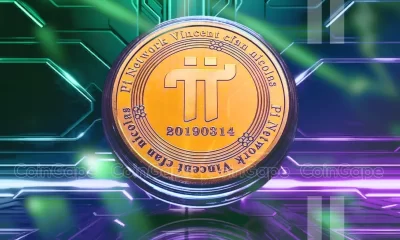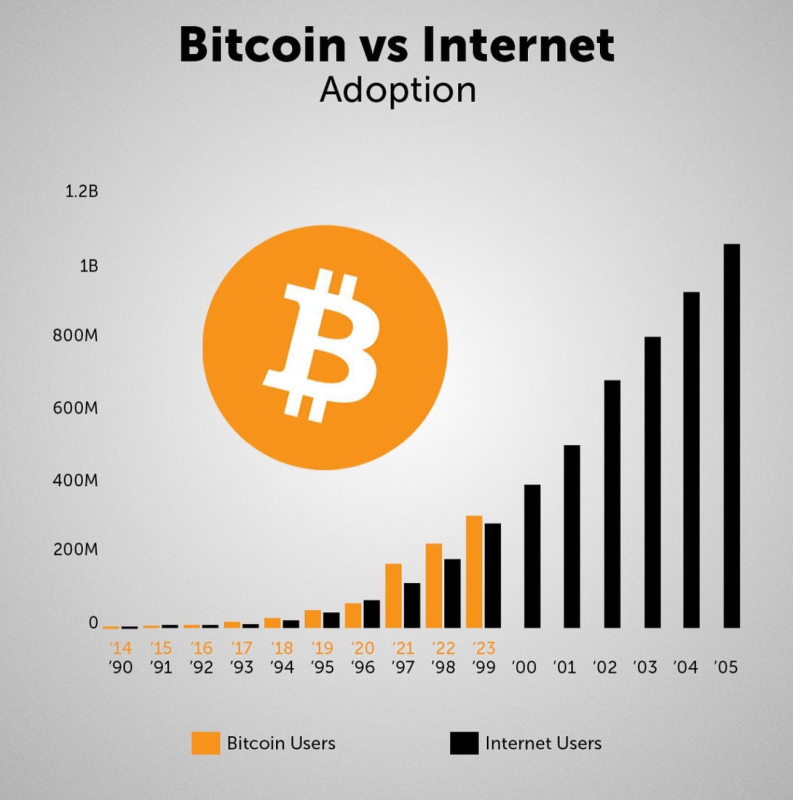Culture
Vote With Your Feet: A Short Story
Published
4 months agoon
By
admin

“Give me liberty, or give me death!” Ben James said, poking the air with his fork to emphasize. I smiled back at my husband as he enjoyed the steak I’d grilled in the backyard. He was telling me about the second Citadel he wanted to create, this one affiliated with us, run like ours, but on Mars. We had enough wealth from his father’s early Bitcoin purchases to create multiple cities if we wanted to. And Ben James wanted to.
I looked over at our daughter, Marla, dutifully whipping up sandwiches for her brothers before they came home; she was beautiful, the sun shining behind her long hair as a breeze blew through our kitchen windows and gently rustled her sundress in the hot summer air, her apron accentuating her slender waist. We made eye contact, deep understanding and knowing passing between us. My youngest daughter, 6 year old Eloise, sat at the table doing her reading homework.
In Ben James’ citadel, every child was home schooled. Some of us moms cooperated to lighten the load, teaching another’s children for a year or two, then switching it up.
“They say Mars is like the Old West,” Marla said. I turned away, knowing before either spoke another word how this conversation would go. “Survival is so difficult that women must be willing to act like men, to do everything men do, whether because there’s so much to do or because the men die.”
Ben James set down his fork, eyebrow raised as he assessed her. “Perhaps those boys just haven’t figured out how to be masculine yet,” he said. “That behavior would not be tolerated on my citadel on Mars any more than it is here. No woman of mine will ever work for another man. I won’t have whores in my family, or in my Citadel.”
Marla got a sly look on her face. “So what does that make the men working for other men?” she quipped slyly. “Didn’t you used to work for—“
Ben James’ chair made a painful screech on the floor as he exploded to his feet. My husband and my teenage daughter stared each other down, and I wanted to grab her arm, pull her back, tell her to stop being a rebellious and impulsive child. In a Citadel, the word of the Sovereign was law. And he could exile you, or worse, on a whim.
“You’re a young, chaotic woman,” he said quietly. “You cannot understand how the worlds work. You have everything you need. As a family, we are free from the tyrannies of the State. And you are lucky enough to be where you belong. Women are most happy in the home, cooking, working with children. I will hear no more of this foolishness.”
“Yes, yes, Bitcoin gives Freedom,” Marla smiled. “Without freedom, better death.” In a way only a teenager could, she grinned deviously at him, mouth pursed, and went back superciliously to finishing the sandwiches. “I do so love spreading mayonnaise on slices of bread while my brothers are out shopping for rockets to a far away planet.”
“GET OUT!” Ben James shouted.
“Gladly.”
Marla left, smugly dropping the knife on the unfinished sandwiches.
I sighed, looking at him sympathetically. “She’ll learn,” I said.
“Jeremy was here yesterday,” he said.
“Oh?” I asked, my heart starting to speed.
“He would like to marry her.”
I brightened my eyes with excitement. “He would bring her into line.”
“Indeed. A few more years and his Bitcoin holdings will be enough for a small Citadel of his own. No city, but certainly a small town or large ranch, housing a dozen other families. He would run it extremely well.”
My four sons all ran into the home at the same time; 7 year old Jared, 13 year old Bo, and the 17 year old twins, Jackson and Luke.
Ben James smiled broadly and sat back down at his steak. “Finish their sandwiches,” he told me.
I laughed good-naturedly and turned with a smile to the counter, and got to work finishing their food.
Ben James had approval in his voice. “That, boys, is a good woman! Never ask a woman to make you anything for dinner; you must tell her. If she says no, walk away. If she complains about how you ordered her, find another woman. A fundamental test of a woman’s quality.”
I handed my sons their meals, and asked Luke how the day had gone.
He smiled at me. “A bunch of stuff you wouldn’t understand,” he told me lovingly.
I thought about my days before the war broke out, before society had broken down into anarchy, when I had been in school learning how to build the very rockets he was likely looking at purchasing. He had no idea how they ran.
But Ben James always said making rockets would never fulfill me. It was in the home that my happiness was. I smiled at my four boys and Eloise, at my husband. Those days, full of curiosity and problem-solving, were behind me. The riches of my father-in-law made it possible for me to be truly happy here, in this home, without the dopamine rushes of intellectual and engineering problems solved each day.
I had married Ben James to survive, the way women had done since the dawn of time. He was my provider and protector. He had taught me a lot, and his passion for self-sovereignty had infected me.
My eyes rested on the quote framed in the living room. “I don’t believe we shall ever have a good money again before we take the thing out of the hands of government, that is, we can’t take it violently out of the hands of government, all we can do is by some sly roundabout way introduce something that they can’t stop.”
Bitcoin. The tool that had equalized the power dynamics between the powerful and the ruled. The means of freedom for millions of people. The great uplifter.
I smiled.
When Ben James sat Marla down the next day and told her she was to marry Jeremy, I was impressed at her stillness. She did not flinch, did not even glance in my direction. She stared blankly at the floor for several seconds. After a moment she got a small smile on her face and looked Ben James directly in the eyes. “Father.” She blinked. “You’ve always taught me so much.”
He looked taken aback. “And?”
She shrugged. “That’s all. I want you to know that despite everything, I’ve taken it to heart.”
He looked at me, bemused. But then told her, “You’re to be married in two months, once all the wedding details are arranged. You and your mother will work it out.”
Marla finally looked at me. There was a new seriousness on her face I had never seen before. But I understood; she was ready.
I’d been preparing for this wedding day for years and the pieces finally fell easily into place; purchasing and packing up clothing for her honeymoon, transferring the money her father had saved as a dowry to new UTXOs, ready to join funds with her husband. My daughter was prosperous, rich enough to own her own land, a great deal of it.
My husband saw the charge to the airline later in the day. “I see you got her honeymoon tickets, a little pricey.”
I grimaced. “I wanted them to fly private.”
“It’s ok, I should’ve done it. I know women don’t really like finances. It’s not your fault they overcharged you.”
I shrugged, remembering the first time he had hit me; I’d spent money on a plane ticket, planning a trip to visit my friends. He had made it clear that women traveling alone for fun always lead to affairs and evil, especially when going with their female friends. Later he had explained that wanting to visit my mother was equally taboo. I knew that after marrying Jeremy, Marla would not be coming to visit anymore. She would stay home with her children even if Jeremy visited Ben James.
Two months later, everything was ready. “We’ll meet you at the church,” I told Ben James. My eyes landed on the framed quote once more. “Some sly roundabout way.”
The boys headed to the bachelor party while Marla, Jared, and Eloise piled into the car while I put Marla’s honeymoon suitcase in the trunk. We were to meet at the chapel that evening for the wedding. Marla and I smiled at each other as Ben James and my older sons drove away.
We got into the car. Two hours later we reached our destination, and grabbed her suitcase, which held clothes for myself, Eloise, and the two young children. In my head and Marla’s as well were the same twelve words. We hurried to the private airplane awaiting us, and the pilot stepped forward himself to meet us and verify our four discounted tickets, before escorting us into the interior. We were in the air ten minutes later.
__________________________
We’d been living in Rockson Citadel for six years. It had taken an entire two years for Ben James to find us. He quickly realized that we had fled to a small nation that was far more prosperous than he was. There was nothing he could do to get us back. I had my own Bitcoin that he had never known anything about, enough to flee, to hire protection, and he could not reach us. Soon I was taking part in the prosperity of Rockson, no longer in a Citadel with the brainpower of only 50% of its population, only able to purchase rundown rockets, but in Rockson, a society that built new ones and created innovation. I added my insatiable curiosity and joy of discovery, my brain power, to everyone else’s, contributing to society and the rocket industry. My many female colleagues worked with the men, and our combined brain power had us light years ahead of tiny backward Citadels like Ben James’. Our weaponry alone could wipe his city off the planet before he’d have time to point that angry finger of his in judgment.
My daughter married Jason, and they were expecting their second of hopefully many children. He continued to work as an engineer in the oil industry, and Marla had a remote job at home, tutoring university students in physics while staying home full time with the toddler. She had earned her bachelor’s degree with his support, and during her University studies he had stayed home to watch the kids when needed. She was now taking online courses for her graduate degree. They also had a thriving artwork following, painting each morning and selling the pieces at a hefty price, the shared passion that had brought them together in the beginning. Every evening the three of them ate dinner together, and any time I wanted to stop by I was welcomed with open arms.
By the time I remarried, Ben James was a distant punchline of jokes.
My husband, Henry, would say, “I can’t believe he knew that Bitcoin would give power and freedom to men to vote with their feet, but couldn’t foresee it would give women the same power with men.”
Marla would add, “He actually thought we’d all go back to traditional roles for women, stuck at home, being told by him what we like, what we want.”
I’d laugh, Henry’s arm wrapped happily around me. “Our freedom means men have to be better to be chosen by us—we have the means to flee, to thrive, to have the power to pick who is best for us.” Cheekily, I added, “Men must put in more proof of work.”
Henry hugged me tighter. “We are better men due to the motivation. Sounds like a net positive to society to me.”
Marla smiled gleefully. “Give me liberty, or give me death.”
This is a guest post by Ninja Grandma. Opinions expressed are entirely their own and do not necessarily reflect those of BTC Inc or Bitcoin Magazine.
Source link
You may like


Metaplanet makes largest Bitcoin bet, acquires nearly 620 BTC


Tron’s Justin Sun Offloads 50% ETH Holdings, Ethereum Price Crash Imminent?


Investors bet on this $0.0013 token destined to leave Cardano and Shiba Inu behind


End of Altcoin Season? Glassnode Co-Founders Warn Alts in Danger of Lagging Behind After Last Week’s Correction


Can Pi Network Price Triple Before 2024 Ends?


XRP’s $5, $10 goals are trending, but this altcoin with 7,400% potential takes the spotlight


The Islamic conceptualisation of finance is built around a set of core principles which give primacy to honesty, fairness and accountability in trade and transactions. As such, Islamic finance seeks uphold justice, transparency, and shared prosperity in economic systems. Arguably, fiat currency achieves the exact opposite of these principles, since it introduces uncertainty, speculation and inequities that punish the poor, who earn and spend fiat, and favours the rich who invest in assets that benefit from inflation. In this backdrop, Bitcoin emerges as a solution that aligns remarkably well with Islamic finance principles. This article explores why Bitcoin, with its decentralization, transparency, and scarcity, represents the most Islamic form of money, offering transformative potential for the Muslim world.
The foundational principles of Islamic finance include:
1. Prohibition of Riba (Usury):
Interest-based lending, where money generates money without productive activity, is strictly forbidden in Islam. Riba fosters exploitation, concentrates wealth, and undermines social equity.
2. Prohibition of Gharar (Uncertainty):
Transactions should be free from undue speculation or ambiguity. Clear terms and honest practices are paramount.
3. Asset-Backed Economy
Trade and transactions should involve tangible assets or productive activities. Wealth must be earned through legitimate means, not through gambling or speculative bubbles.
4. Risk Sharing
Islamic finance emphasizes equity-based partnerships where profit and loss are shared, ensuring mutual benefit and fairness in all financial dealings.
5. Justice and Equity:
Wealth distribution should serve societal needs, promoting fairness and reducing economic disparities.
One could very credibly argue that the current fiat-based monetary system flagrantly violates these tenets. Central banks set interest rates that underpin the entire fiat system, institutionalizing usury. Money created out of debt inherently generates unearned profits for lenders while indebting others, fostering exploitation and inequality. The fiat system disproportionately benefits those closest to the source of money creation (e.g., banks, governments) at the expense of ordinary people. This “Cantillon Effect” exacerbates wealth inequality, violating Islamic values of equity and justice.
Fiat currencies are prone to inflation and devaluation due to their unlimited supply. This creates uncertainty and speculative behaviour, further destabilizing economies and harming the most vulnerable. Unlike gold or tangible assets, fiat money is not backed by any physical commodity. It is merely a promise of value, eroding trust and violating Islam’s emphasis on tangible, asset-backed wealth. Centralized control of money by a few institutions undermines accountability, fosters corruption, and allows governments to manipulate currencies to serve political agendas, often to the detriment of their citizens. These systemic flaws have led to financial crises, inequality, and the erosion of societal trust.
Bitcoin, the world’s first decentralized digital currency, aligns closely with the ethical and economic teachings of Islam. Bitcoin operates without interest-based mechanisms. Its decentralized nature ensures that no central authority can create money out of thin air or profit unjustly through usury. Every Bitcoin transaction is recorded on an immutable public ledger, the blockchain. This ensures honesty and accountability, eliminating the uncertainty associated with opaque fiat systems.
Bitcoin’s supply is capped at 21 million coins, making it a deflationary asset. Its scarcity mirrors the attributes of gold, historically accepted as sound money in Islamic societies. Unlike fiat money, Bitcoin is not controlled by any government or institution. Its decentralized network empowers individuals and fosters equity, aligning with Islam’s emphasis on justice and fairness.
Bitcoin is not a speculative promise; it is earned through “proof-of-work,” which requires significant energy and computational effort. This tangible cost of production imbues it with intrinsic value, resonating with Islamic financial principles. Bitcoin allows anyone with an internet connection to participate in the global economy. This inclusivity aligns with Islam’s vision of reducing economic barriers and promoting universal access to financial resources. Through its adherence to these principles, Bitcoin offers a viable alternative to the exploitative fiat system, paving the way for a more just and equitable financial future.
Adopting Bitcoin on a wide scale could revolutionize the Muslim world, unlocking unprecedented economic opportunities. Many Muslim-majority countries suffer from chronic inflation, eroding the value of their fiat currencies and impoverishing their citizens. Bitcoin’s deflationary nature provides a hedge against inflation, preserving wealth over time. Millions of Muslims remain unbanked due to lack of access to traditional financial services. Bitcoin’s decentralized system allows individuals to store and transfer wealth securely without relying on banks, fostering economic empowerment. Muslim-majority countries are among the largest recipients of remittances. Bitcoin enables faster, cheaper, and more secure cross-border transactions, reducing reliance on costly intermediaries.
By decentralizing money creation and eliminating the privileges of central banks, Bitcoin ensures a fairer distribution of wealth, addressing economic disparities that plague many Islamic societies. Bitcoin’s transparent system facilitates the development of Shariah-compliant financial products and services, promoting ethical investment opportunities in line with Islamic values. Bitcoin enables nations to reduce their dependence on the US dollar and other foreign currencies, strengthening their economic sovereignty and resilience. By enabling trustless, borderless transactions, Bitcoin fosters trade within the global Muslim community, encouraging innovation and economic integration across nations.
Bitcoin is more than just a technological innovation; it is a financial system rooted in justice, transparency, and equity—values deeply embedded in Islamic teachings. As the Muslim world grapples with the challenges of fiat-based economies, Bitcoin offers a path toward economic independence, financial inclusion, and societal prosperity. By embracing Bitcoin, the Muslim world can align its financial systems with the timeless principles of Islam, paving the way for a fairer and more sustainable future.
This is a guest post by Ghaffar Hussain. Opinions expressed are entirely their own and do not necessarily reflect those of BTC Inc or Bitcoin Magazine.
Source link
2024 Election
Bitcoin is Neither Racist, Xenophobic, nor Misogynistic: A Response to Ideological Stereotyping
Published
4 weeks agoon
November 27, 2024By
admin

Just hours after the U.S. election results were announced, I received messages from friends filled with striking assumptions. Some congratulated me, mockingly saying, “Congrats, your side won for Bitcoin.” Others expressed disapproval with remarks like, “It’s pathetic!” and “I’m shocked that Americans just voted for Hitler.” One friend said, “You were lucky to find safety in the U.S. as a refugee under Biden’s administration. Refugees and asylum seekers will now face a harder time here, but, hey, it’s still good for your Bitcoin.” Many of these friends work in high-level corporate jobs or are university students.
As a Green Card holder, I was not eligible to vote, but I recognize their huge disappointment in seeing their preferred candidate lose. Their frustrations were directed at me because they know I support Bitcoin and work in the space. I understand that making me a scapegoat says less about me and more about their limited understanding of what Bitcoin’s value represents.
I’m aware that in this highly polarized political landscape, ideological stereotyping becomes evident—not only during election season but also in spaces where innovative thinking should be encouraged. A prime example of this ideological bias occurred during the Ohio State University commencement, where Chris Pan’s speech on Bitcoin was largely booed by students attending their graduation ceremony. I admire the courage it took to stand firm in front of over 60,000 people and continue his speech. My guess is that most of these graduating students have never experienced hyperinflation or grown up under authoritarian regimes, which likely triggered an “auto-reject”’ response to concepts beyond their personal experience.
I’ve encountered similar resistance in my own unfinished academic journey; during my time at Georgetown, I had several unproductive conversations with professors and students who viewed Bitcoin as a far-right tool. Once a professor told me, “Win, just because cryptocurrency (he didn’t use the term Bitcoin) helped you and your people in your home country doesn’t make it a great tool—most people end up getting scammed in America and many parts of the world. I urge you to learn more about it.” The power dynamics in academic settings often discourage open-minded discourse, which is why I eventually refrained from discussing Bitcoin with my professors.
I’ve learned to understand that freedom of expression is a core American value. Yet, I’ve observed that certain demographics or communities label anyone they disagree with as ‘racist.’ In more extreme cases, this reaction can escalate to using influence to have people fired, expelled from school, or subjected to coordinated cyberbullying. I’m not claiming that racism doesn’t exist in American society or elsewhere; I strongly believe both overt and subtle forms of racism still persist and are well alive today.
Although bias and inequality remain widespread, Bitcoin operates on entirely different principles. Bitcoin is borderless, leaderless, and accepting of any nationality or skin color all while without requiring any form of ID to participate. People in war-torn countries convert their savings into Bitcoin to cross borders safely, human rights defenders receive donations in Bitcoin, and women living under the Taliban get paid through the Bitcoin network.
Bitcoin is not racist because it is a tool of empowerment for anyone who is willing to participate. Bitcoin is not Xenophobic because it gives those forced to flee their homes the power to carry their hard-earned economic energy across borders and participate in another economy when every other option is closed. For activists, often branded as ‘criminals’ by authoritarian regimes, it supports them through frozen bank accounts and blocked resources. For women, enduring life under misogynistic rule, Bitcoin offers a rare chance for financial independence.
Going back to the U.S. election context, Bitcoin not only levels the playing field for people in the world’s most forgotten places and darkest corners, but it also opens new avenues for U.S. presidential candidates to engage with this growing community. President-elect Donald Trump has made bold promises regarding Bitcoin, signaling a favorable policy. In contrast, Democratic candidate Vice President Kamala Harris’s campaign reportedly declined to support the Bitcoin community. Grant McCarty, co-founder of the Bitcoin Policy Institute, stated, “Can confirm that the Harris campaign was offered MILLIONS of dollars from companies, PACs, and individuals who were looking for her to simply take meetings with key crypto stakeholders and put together a defined crypto policy plan. The campaign never took the industry seriously.” I believe this is something most people may be unaware of, and confirmation bias often leads to the assumption that all Bitcoin supporters back every policy of the other side, including potential drastic changes to America’s humanitarian commitments such as refugee resettlement and asylum programs, anti-trafficking and protection of vulnerable populations, and foreign aid and disaster relief.
Most people around the world lack a stable economic infrastructure or access to long-term mortgages; they live and earn with currencies more volatile than crypto gambling and, in some cases, holding their own fiat currency is as dangerous as casino chips, or worse.
The Fiat experiment has failed the global majority. I believe that Bitcoin and Bitcoin advocates deserve to be evaluated on their merits and work on global impact, rather than through the binary lens of political bias, misappropriated terms, or factually flawed yet socially accepted diminutive categorizing, which allows them to opt out of learning and evaluating assumptions.
This is a guest post by Win Ko Ko Aung. Opinions expressed are entirely their own and do not necessarily reflect those of BTC Inc or Bitcoin Magazine.
Source link

Today’s modern Bitcoin exchanges have drastically improved access to Bitcoin ownership in 2024. Gone are the days of janky peer-to-peer (P2P) trade forums and questionably secure early exchanges like Mt Gox. Instead, a legion of Bitcoin on-ramps focused on superior security and user experience (UX) has made purchasing your first Bitcoin a breeze. Many of these services have even embarked on education-focused initiatives to encourage greater adoption during Bitcoin’s most recent bear market. In November 2023 Swan launched Welcome to Bitcoin, their free introductory 1 hour course about Bitcoin. In December 2023, Cash App released BREAD, a free, limited-edition magazine that uses design to tell stories and educate readers about Bitcoin in a relatable and accessible way.
What these initiatives show is that Bitcoin adoption is approaching a turning point. These two major Bitcoin exchanges, along with the industry as a whole, are discovering that easy access to a smash buy button does not guarantee purchase. Numerous barriers to entry still exist for nocoiners, which provide significant constraints to understanding Bitcoin, and thus throttle Bitcoin’s growth and adoption. As we approach a steeper incline in Bitcoin’s bell curve, throwing novices into exchange apps without sufficient education and cultivation is no longer a strategy for success.
What once was a far simpler task of energizing early adopters and cypherpunks around Bitcoin’s clear value proposition, is evolving into a more complex and convoluted process of orange-pilling the early majority of future Bitcoin holders. This, we hope, will then lead to widespread Bitcoin mass adoption as society en masse chooses to store its time and energy in the best money ever created. For this hyperbitcoinization to occur, more people need to understand the intricacies of Bitcoin. This is easier said than done because Bitcoin still has an education problem:
- An Economist Intelligence Unit study reported that 51% of people said a lack of knowledge is the main barrier to Bitcoin ownership.
- A YouGov survey found that 98% of novices don’t understand basic Bitcoin concepts.
- A nationwide survey from the Yale Center discovered that 69% of young people find learning boring.
This research outlines the struggle of onboarding and educating the next generation of Bitcoiners, most notably younger generations who have been shown to possess a limited attention span of 8 seconds. For inspiration to help solve this problem, we can look at one of the most popular mobile games of all time… Pokémon GO.
Pokémon GO was and remains to be, a global phenomenon. This beloved app caught the attention of Gen-Z, millennials, and Gen-X alike, boasting record-breaking engagement stats:
- In 2016, the game peaked at 232 million active players.
- Pokémon GO has grossed over $6 billion in revenue.
- In 2024, 24% of 18–34-year-olds in the US are playing Pokémon GO, while 49% of 35–54 year-olds are playing.
We at Jippi believe that the success of this award-winning game can illuminate the path forward for Bitcoin adoption. So we have set upon the electrifying task of building Tribe Clash–the world’s first Pokémon GO-inspired Bitcoin education game. The rules are simple, create or join a Tribe and battle for dominance over a city with your friends by catching a Bitcoin-themed Beast in every Territory.
Each week Jippi will release a new Territory to be claimed. A Tribe member will explore that Territory with their phone, where they will discover a Bitcoin Beast to catch. If they successfully answer all Bitcoin quiz questions correctly the fastest, they will then catch that beast. The Tribe with the most Territories and Bitcoin Beasts at the end of the game will win $30k worth of Bitcoin to be dispersed equally to each Tribe member.

Our vision is for Jippi to become the largest, most popular platform for beginners to gather, educate, and accumulate Bitcoin. We see Jippi as the most accessible on-ramp into the industry, where we can educate a whole new generation of Bitcoiners from novices to experts by lowering the barrier to entry.
You can support the development of Tribe Clash by contributing to our crowdfunding campaign on Timestamp. Timestamp enables investors of all backgrounds to support Bitcoin-only companies and make an impact. Our campaign is open to both the general public and accredited investors, so we would love for you to join us on this journey.
This is a guest post by Oliver Porter. Opinions expressed are entirely their own and do not necessarily reflect those of BTC Inc or Bitcoin Magazine.
Source link

Metaplanet makes largest Bitcoin bet, acquires nearly 620 BTC

Tron’s Justin Sun Offloads 50% ETH Holdings, Ethereum Price Crash Imminent?

Investors bet on this $0.0013 token destined to leave Cardano and Shiba Inu behind

End of Altcoin Season? Glassnode Co-Founders Warn Alts in Danger of Lagging Behind After Last Week’s Correction

Can Pi Network Price Triple Before 2024 Ends?

XRP’s $5, $10 goals are trending, but this altcoin with 7,400% potential takes the spotlight

CryptoQuant Hails Binance Reserve Amid High Leverage Trading

Trump Picks Bo Hines to Lead Presidential Crypto Council

The introduction of Hydra could see Cardano surpass Ethereum with 100,000 TPS

Top 4 Altcoins to Hold Before 2025 Alt Season

DeFi Protocol Usual’s Surge Catapults Hashnote’s Tokenized Treasury Over BlackRock’s BUIDL

DOGE & SHIB holders embrace Lightchain AI for its growth and unique sports-crypto vision

Will Shiba Inu Price Hold Critical Support Amid Market Volatility?

Chainlink price double bottoms as whales accumulate

Ethereum Accumulation Address Holdings Surge By 60% In Five Months – Details
182267361726451435

Why Did Trump Change His Mind on Bitcoin?

Top Crypto News Headlines of The Week

New U.S. president must bring clarity to crypto regulation, analyst says

Will XRP Price Defend $0.5 Support If SEC Decides to Appeal?

Bitcoin Open-Source Development Takes The Stage In Nashville

Ethereum, Solana touch key levels as Bitcoin spikes

Bitcoin 20% Surge In 3 Weeks Teases Record-Breaking Potential

Ethereum Crash A Buying Opportunity? This Whale Thinks So

Shiba Inu Price Slips 4% as 3500% Burn Rate Surge Fails to Halt Correction

Washington financial watchdog warns of scam involving fake crypto ‘professors’

‘Hamster Kombat’ Airdrop Delayed as Pre-Market Trading for Telegram Game Expands

Citigroup Executive Steps Down To Explore Crypto
Mostbet Güvenilir Mi – Casino Bonus 2024

NoOnes Bitcoin Philosophy: Everyone Eats
Trending

 3 months ago
3 months ago182267361726451435

 Donald Trump5 months ago
Donald Trump5 months agoWhy Did Trump Change His Mind on Bitcoin?

 24/7 Cryptocurrency News4 months ago
24/7 Cryptocurrency News4 months agoTop Crypto News Headlines of The Week

 News4 months ago
News4 months agoNew U.S. president must bring clarity to crypto regulation, analyst says

 Price analysis4 months ago
Price analysis4 months agoWill XRP Price Defend $0.5 Support If SEC Decides to Appeal?

 Opinion5 months ago
Opinion5 months agoBitcoin Open-Source Development Takes The Stage In Nashville

 Bitcoin5 months ago
Bitcoin5 months agoEthereum, Solana touch key levels as Bitcoin spikes

 Bitcoin5 months ago
Bitcoin5 months agoBitcoin 20% Surge In 3 Weeks Teases Record-Breaking Potential




